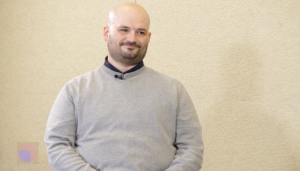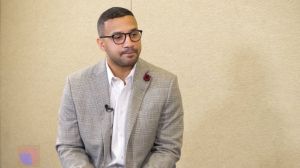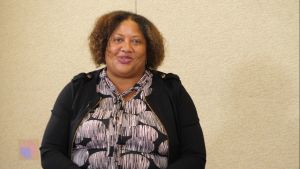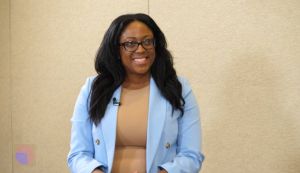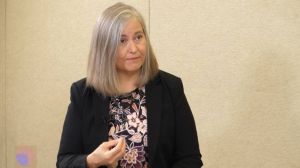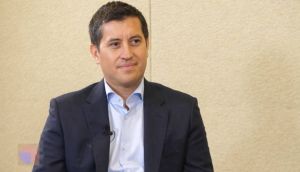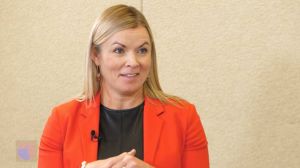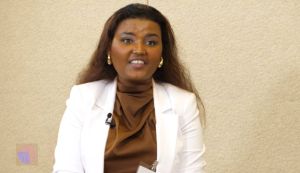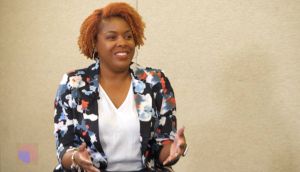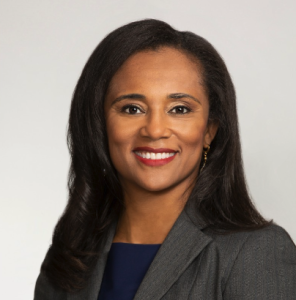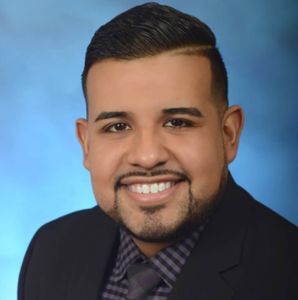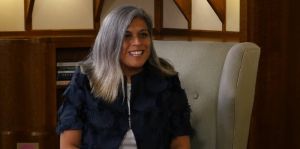By Kate Barton, EY Global Vice Chair of Tax Services
Only in a business that embraces diversity can the cream rise to the top. At EY, that axiom has proven true in Americas Tax as we recognize and reward talent, commitment and results, not gender, race or identity. The Latin America regions have experienced rapid growth for EY Tax, and we’re proud to use this opportunity to accelerate women’s advancement. In Latin America, women represent 53% of our people and 29% of our member firm partners, principals and executive directors. Further, our reputation for creating career opportunities and our strong commitment to diversity and inclusion has helped to improve retention and build a pipeline of women among senior managers and managers coming up through the ranks.
We know that individuals can become the most valuable and productive versions of themselves when they do not have to hide who they are or battle some age-old cultural standard. Organizations perform better when diverse teams are able to evaluate any challenge or opportunity from a wider range of perspectives.
In Latin America, despite pockets of progress, society remains largely conservative and patriarchal. Although women in business leadership positions are no longer a rarity, their full potential is not often allowed to flourish. That’s why it is so important to share the experiences of women who have thrived in EY’s culture that welcomes diversity and includes conscious mentoring and development. I hope these stories of three EY Tax women in Latin America help to increase awareness of the challenges women face. And for a younger generation, I hope these stories inspire you as you map out your own career journey.
It’s all Greek to me — but Spanish, I can learn …
Today, Charikleia “Harili” Tsoukia is a Tax partner at the EY member firm in Mexico City. But 17 years ago, she arrived from Greece with no ability to speak Spanish and no work experience.
Armed with a baccalaureate in math and science and a masters in operations research, the executive-to-be dropped off her resume (printed in her second language, English) at the Big Four and other accounting firms in the area. When someone from an HR department called, she couldn’t understand her rapid-fire Spanish. However, when she did receive a call from a person who spoke English, she scheduled an interview at a boutique firm looking for a job requiring analytical skills to work in transfer pricing. Transfer pricing — or the pricing companies use to transfer products and services within the group — has a strong impact on taxation. They considered her a good fit for the subject and gave her five days to prepare for an interview in Spanish.
With just five days to prepare and one book on Spanish, she listed the likely interview questions, wrote answers in English, then translated them all into Spanish and rehearsed until they were memorized. Her system worked so well, that mid-interview, she was asked, “Are you certain you don’t speak Spanish?” And she got the job.
After three years at the boutique, Harili joined EY Tax where she blossomed, became a partner and continues to be dedicated to transfer pricing with a special strategy: the more you understand, the more value you bring to your clients.
The woman who needed to find an organization that was willing to welcome a foreigner says she feels fortunate to have found her first job, but more, to be at EY. She says, “This is a company that values the individual, but especially, how diverse groups of individuals can come together to create stronger teams to provide even better service and value for our clients.”
Able to be proud of who she is …
Any young woman navigating Mexico City’s professional landscape faces challenges. Abril Rodriguez Esparza wanted to be judged based on the quality of her work and put forth her best effort at all times. Early in her career at a Mexico City law firm, her reviews had always been favorable, until the day she showed up at work and was fired.
The law firm she worked for, like many in Mexico City, was very conservative, so she was very private about being gay. After they let her go, she was led to believe that one or more of her colleagues learned she was gay, which caused her sudden dismissal. Initial devastation turned to empowerment to seek a workplace that would accept who she was. She landed at Tron Abogados, a law firm where the senior partners were very supportive.
Three years later, the firm was acquired by the EY member firm in Mexico. After initial uncertainty about the new owners, Abril learned that EY was an employer that embraces and celebrates diversity. She was welcomed by a company that judged her by her work — and not by other categorizations. A little over four years later, Abril became a partner in the International Tax practice, working on international corporate legal and tax structures and high-net worth wealth planning for Mexican citizens and bi-nationals.
EY propelled Abril to form a support network for the LGBT community — the first of the Big Four in Mexico. The group marched in the 2017 Mexico City Pride Parade — another Big Four first. Abril is grateful and proud that her employer shows leadership in diversity, not only in the US but throughout Latin America.
Today, Abril is the EY regional leader for diversity and inclusion (D&I), expanding her role to help the firm harness the energy of women, minorities, other nationalities and the LGBT communities. She finds that employees who are not distracted by hiding who they are can focus on their work and their careers. She believes: “Companies that celebrate and enable diversity of this kind are rewarded with loyal, committed, high-energy people. It’s a big, big plus for both EY and its clients.”
Awakened — and inspired …
Macarena Navarrete’s experience was less of a struggle and much more of an awakening. Brought up in Chile by a very strong, hard-working mother who carried a lot of responsibilities, Macarena did not see barriers to her success. She did face common adolescent assumptions that her brothers were better at sports, but did not consciously perceive any limitations, even through her studies at the University of Chile.
In 1996, she joined the tax department of the EY member firm in Santiago, a workplace that reflected her perception of women: working in all ranks, very powerful, strong, intimidating in certain ways, but mostly inspiring. Treated with respect, her key sponsors and mentors happened to be men who noticed her potential and challenged her to grow by placing her in positions where she could learn. She became a partner in just six years and, in 2012, joined the executive committee, a group of some 7-10 partners chosen from the total pool of around 60.
In this role, she first learned of the pride other women have in her unusual success. Many women worked in business, but said she is a pioneer, breaking barriers. They told her stories of their career struggles and she suddenly recognized that she was very much in the minority.
Macarena does acknowledge that some elements of her gender present career challenges. At age 30, she became the mother of twins and made that her top priority. If a child’s call comes while she sits in a meeting, she openly takes the call to check for an emergency. She takes time to bring her kids to the doctor. And she cut back on travel. Still, EY was highly supportive, and in the fall 2017 promoted her to become the country managing partner for Chile. In this leadership role, she helps other women and minorities with their careers.
Macarena is grateful for the male leaders and her clients who supported her. She is expanding that culture to make sure all EY looks past gender to judge professionals based on their work. In short, said Macarena, “This is a company that values diversity; that judges individuals for their capabilities and contributions, not their gender or race or sexual preference. I have the ethical obligation to share opportunity with others; and I am, and I will.”
The views expressed are those of the author and do not necessarily represent the views of Ernst & Young LLP or any other member firm of the global Ernst & Young organization.


